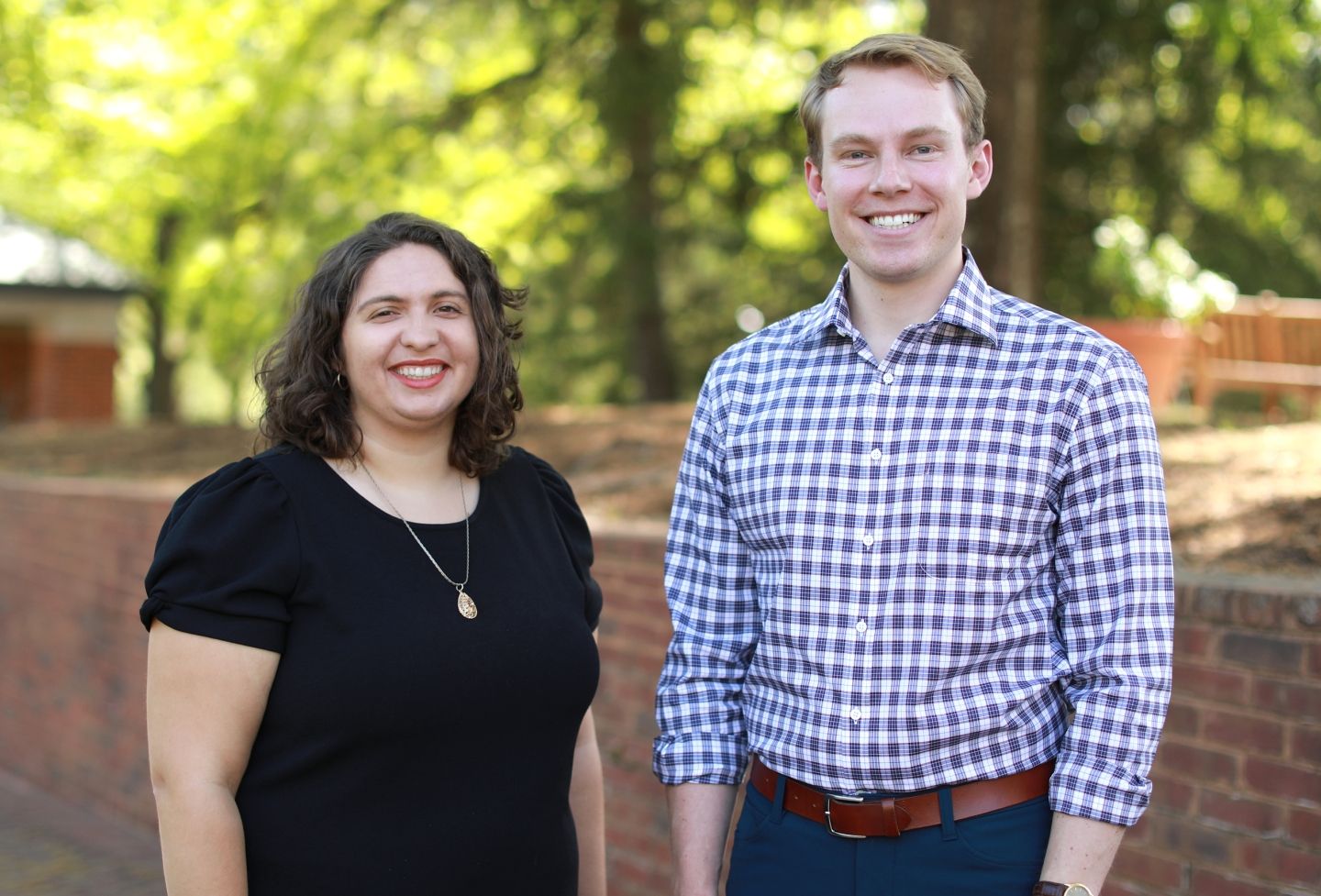Members of the Supreme Court Litigation Clinic at the University of Virginia School of Law traveled to Washington, D.C., on Tuesday to hear Professor Toby Heytens argue on behalf of the city of Hays, Kansas in City of Hays v. Vogt.
Third-year law students Avia Gridi, Ethan Sachs, James Tomberlin, Jennifer Popp, Marc Capuano, Nick Rutigliano, Rebecca Sciarrino and Sterling Moore attended the argument along with the clinic’s director, Professor Daniel Ortiz. Since certiorari was granted in September, many of these students helped develop the arguments advanced in the merits briefs, respond to the arguments presented in the respondent’s reply brief and participate in Professor Heytens’ moot as he prepared for oral argument.
Representing Hays, Professor Heytens argued that “the only setting in which a person can be made a witness against himself for purposes of the Fifth Amendment is during a proceeding where that person’s guilt or punishment are to be adjudicated; that is, at trial.”
In its preview of the argument, SCOTUSblog recently described the case as “deceptively complex.” While the questions presented do represent a number of deeply complex issues, what was clear to the clinic students, both at argument and in preparing the merits briefs, is that Professor Heytens has a great talent for taking difficult questions and distilling them into clear, compelling arguments. Clinic student Jennifer Popp commended his speaking style, noting that “Professor Heytens’ high-energy advocacy and deft responses to questions from the justices captivated the audience.” He skillfully responded to the justices’ numerous questions, never missing a beat.
Watching Professor Heytens argue this case in front of the Supreme Court was a memorable opportunity for all of the students who attended. He and Professor Ortiz, as well as the rest of the clinic instructors, have spent the year helping us sharpen our legal writing and analysis. By attending the argument, we also were able to learn about oral advocacy through Professor Heytens’ example.
It was also gratifying to see how the justices reacted to the other side’s arguments. At one point, Justice Breyer pointed out that Vogt’s position would cause radical changes to criminal proceedings if adopted. Justice Breyer said to Vogt’s counsel, Kelsi Corkran, “if you win, this is a major change,” and that adopting Vogt’s position would cause a departure from current practices that exist for a “set of historical reasons.” Justice Breyer told her that this “makes [him] pretty careful.”
Following the argument, students had lunch with Professors Heytens and Ortiz, members of Professor Heytens’ family, and the clients, who expressed their appreciation to all who were involved in their case. The gratitude went in both directions. As clinic members, we were grateful to the city for giving us the opportunity to work on their case, and we were able to express our gratitude to them.
As a final note, the students who traveled to the Supreme Court on Tuesday were not the only students who contributed to the case. The team assigned to work on the merits briefs also included Clayton Bailey, Gregory Ranzini, Jennifer Davidson and Katie Montoya. Many other students from the class of 2017 worked on this case last year, successfully persuading the Supreme Court to grant certiorari, and many current clinic students have tackled equally interesting legal issues in other matters. Dan Richardson, Jay Swanson, Joseph Barakat and Megan Shoell are also members of this year’s clinic.
Editor’s note: Heytens is on leave from UVA Law while he serves as Virginia’s solicitor general. He was slated for the appearance prior to being named to his new role.
Founded in 1819, the University of Virginia School of Law is the second-oldest continuously operating law school in the nation. Consistently ranked among the top law schools, Virginia is a world-renowned training ground for distinguished lawyers and public servants, instilling in them a commitment to leadership, integrity and community service.


